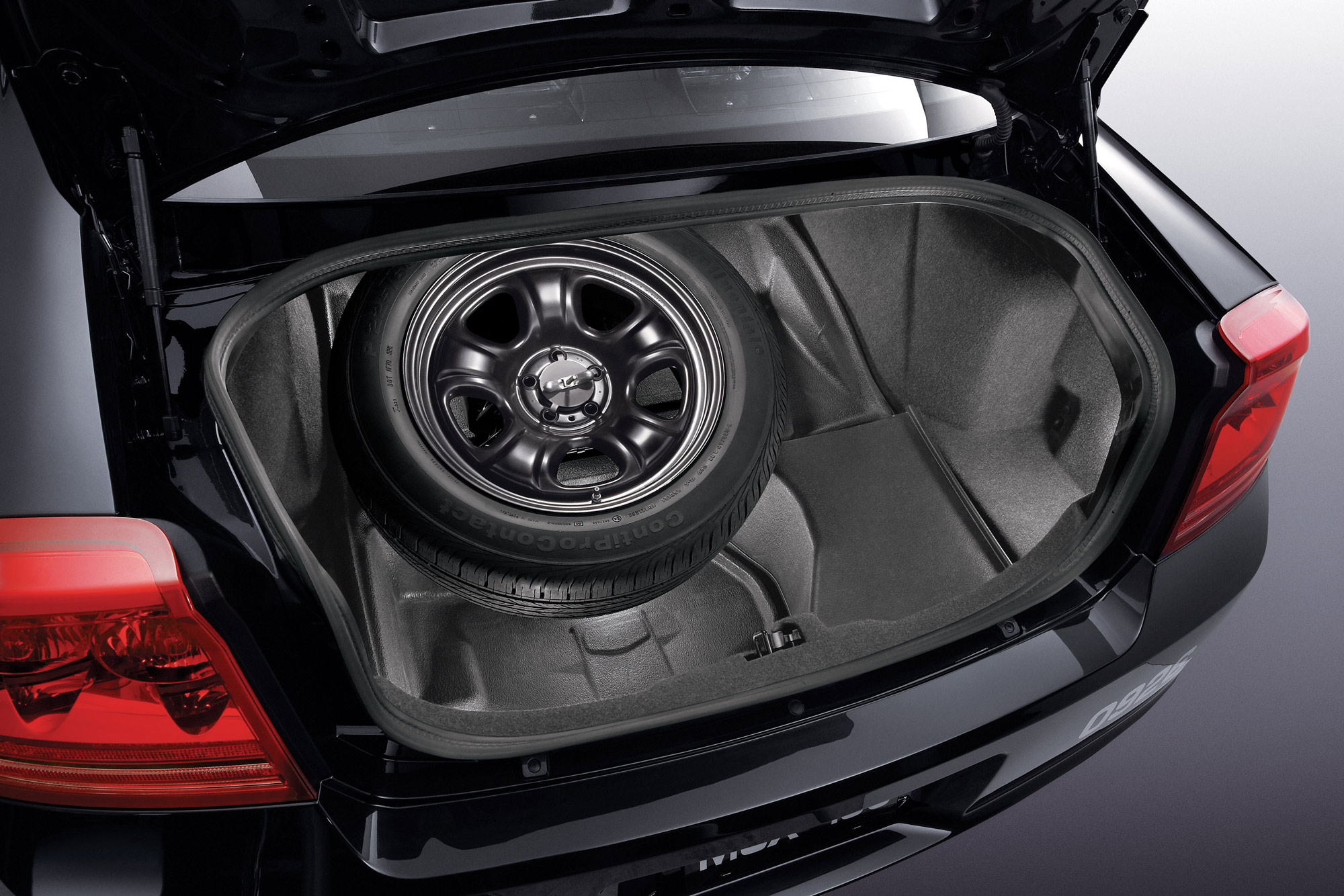5 Reasons Why Many New Cars No Longer Have a Spare Tire
If you don't find one in your trunk, you're in good company.
 Dodge
Dodge
Is your new vehicle missing a spare tire? Before returning to the dealership to complain, it's helpful to know that many automakers are stingy with full-sized spares, if they include one at all. There are several compelling reasons many vehicles, from the Dodge Charger to the Tesla Model X, no longer carry spare tires.
Less Weight Equals Better Fuel Efficiency
You don't have to be an automotive engineer to know that every pound subtracted from a vehicle's curb weight will make it more efficient and boost its performance at the fuel pump. That means the 30 to 50 pounds of a spare tire, jack, and lug wrench work against an automaker's efforts to reduce a car's heft.
This makes spare tires and their accessories an easy target for product planners to remove entirely and replace them with a lighter, space-saving spare or an inflation kit. Alternatively, they might outfit the vehicle with run-flat tires as standard equipment.
It's a Cheaper Option for Car Manufacturers
Not only do car manufacturers view full-size spare tires as dead weight, those tires are also more expensive than space-saver spares and their alternatives. A full-size spare's larger steel wheel or replacement tire mounted on a factory rim can add significantly to a vehicle's production costs. That means eliminating spare tires can mean additional profits for car manufacturers.
Subtracting the Spare Can Add Cargo Space
Modern cars and SUVs might be bigger on the outside, but that doesn't always translate into more passenger and cargo room inside. That's why today's car designers must consider the space requirements of a full-size spare tire.
Accommodating storage for a full-size tire's cavity under the load floor can interfere with suspension components, fuel tanks, or electric batteries. It can also force the floor to rise, cutting into the space available for gear and seating.
Run-Flats and Inflation Kits Have Taken Their Place
Some of the earliest adopters of the no-spare philosophy were vehicles with run-flat tires straight from the factory. Even if all the air has leaked out, these tires can maintain structural integrity long enough to get the vehicle safely to where the damaged tire can be repaired or replaced.
Another approach designers have taken to save on space, cost, and weight has been transitioning away from spare tires in favor of tire inflation kits. These usually consist of an electric inflator and a slime-like liquid that is injected into a tire. This seals the puncture and keeps the tire inflated enough to be driven home or to a repair shop.
Roadside Assistance Can Also Step In
If you have a tire go flat on a busy stretch of highway, it can often be too dangerous to get out of your vehicle and attempt to replace the damaged tire, even if you are equipped with a full-size spare. The same can be said for a flat that leaves you stranded late at night in an unfamiliar neighborhood.
Roadside assistance programs can send a tow vehicle to your location quickly and are often less of a hassle than changing a tire under even the best of circumstances.
Written by humans.
Edited by humans.
 Benjamin Hunting
Benjamin HuntingBenjamin Hunting is a writer and podcast host who contributes to a number of newspapers, automotive magazines, and online publications. More than a decade into his career, he enjoys keeping the shiny side up during track days and always has one too many classic vehicle projects partially disassembled in his garage at any given time. Remember, if it's not leaking, it's probably empty.
Related articles
View more related articles